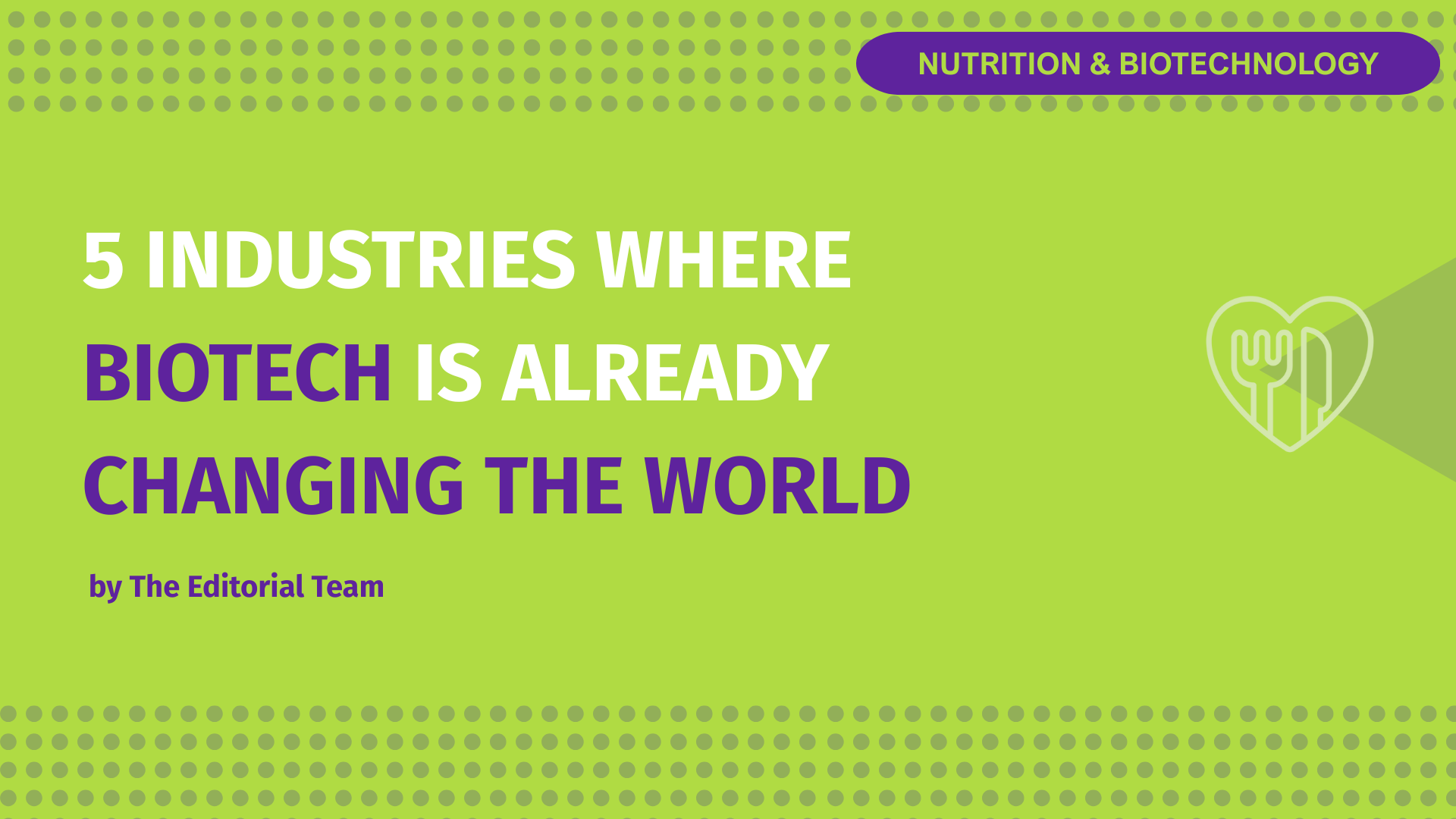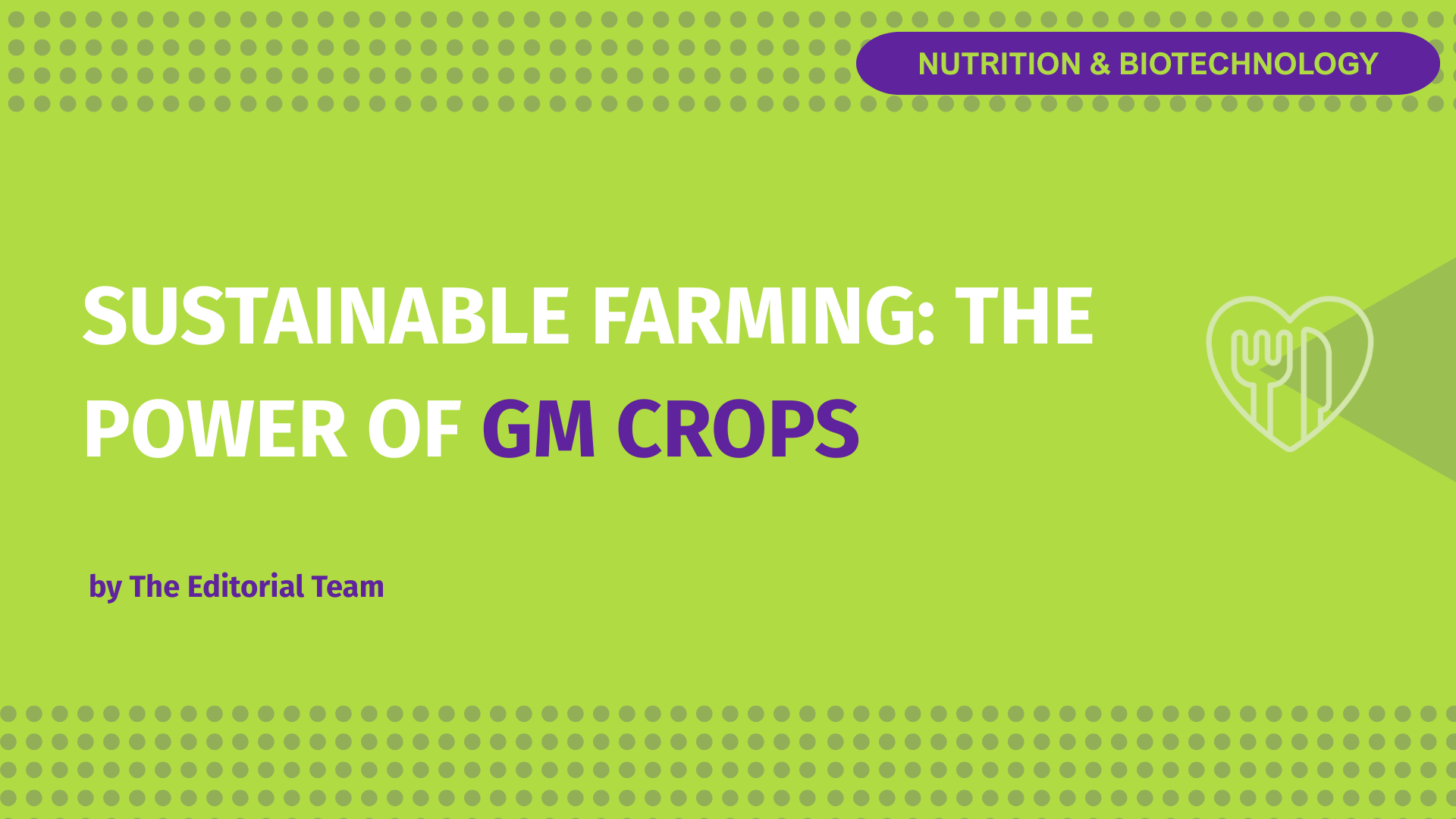As the climate crisis accelerates, one question keeps surfacing: can we find a way to live without destroying the world we depend on? A growing number of scientists and companies believe the answer lies in biotechnology—and in the astonishing efficiency of nature itself.
Instead of relying on resource-heavy industrial processes and toxic chemicals, biotech taps into millions of years of biological evolution, offering cleaner, more sustainable solutions. By mimicking or enhancing natural processes, it promises to transform how we produce food, clothes, buildings, and even skincare. And it’s already happening.
Here are five key industries where biotechnology is quietly rewriting the rules of sustainability:
1. Farming Without Poison: The Rise of Biopesticides
Conventional pesticides are effective—but toxic. They contaminate soil and water, harm biodiversity, and even pose health risks to humans. Biopesticides, by contrast, are derived from natural sources such as bacteria, minerals, or plants.
Take Amoéba, for instance. This French biotech firm is using Willaertia magna, a naturally occurring amoeba, to protect crops from fungal diseases. Its AXPERA solution is on track to be approved in both Europe and the U.S. by 2025. Meanwhile, Biotalys is developing “agrobodies”—engineered proteins inspired by llama antibodies—to precisely target harmful pathogens without collateral damage.
2. Clothes That Don’t Cost the Earth
Fast fashion comes with a heavy environmental price: chemical waste, textile pollution, and unsustainable consumption. But biotech offers a radical alternative—biodegradable, lab-grown fabrics.
German startup AMSilk is using bacterial fermentation to produce spider silk—a strong, lightweight, and biodegradable material. It’s collaborating with Adidas on running shoes that vanish back into nature after use. Others, like Algalife, harness algae to grow textile fibers using only sunlight and water. And companies like Colorifix are creating eco-friendly dyes made by microbes, replacing harsh chemical treatments in the dyeing process.
3. Greener Buildings Through Living Materials
The construction sector is one of the world’s biggest polluters. Cement alone accounts for roughly 8% of global carbon emissions. Could we grow our materials instead?
Companies like Biohm are using fungi and food waste to create insulation panels. Green Basilisk embeds bacteria into concrete that can self-heal when cracks appear. And Biomason is building cement-free tiles using microbes that form calcium carbonate—the same compound found in seashells.
4. Clean Beauty from Microbial Labs
Natural doesn’t always mean sustainable. Many plant-based ingredients in cosmetics are difficult to harvest and require enormous resources. Biotech companies are changing this with precision fermentation, using microbes to produce pure active ingredients.
Deinove has developed a method to produce phytoene, an anti-aging compound, without growing a single plant. Meanwhile, Bioeffect and Biossance use similar fermentation techniques to create skincare compounds that are both potent and environmentally conscious.
5. GM Crops for a Warmer, Drier World
Love them or hate them, genetically modified crops may be one of our best tools for climate resilience. Engineered to resist droughts, pests, and disease, GM plants reduce the need for water, fertilizers, and pesticides—while boosting yields.
In the U.S., over 90% of corn, soy, and cotton are now grown from GM seeds. Bayer’s Intacta2 Xtend soybeans are set to cover 30% of Brazil’s soybean fields in the 2024–2025 season. These crops are helping farmers feed more people with fewer resources and less environmental impact.
Final Thoughts: Nature, Engineered for the Future
Sustainability is no longer just about reducing harm—it’s about building smarter systems from the ground up. Biotechnology, rooted in nature yet powered by science, offers a blueprint for that transformation.
Whether it’s the clothes we wear, the buildings we inhabit, or the food we grow, living systems might just help us repair the damage we’ve caused—and prevent future harm.
But as we lean into biotech as a solution, we must also ask: how far should we go when engineering nature itself? At Ethira, we believe this is more than a technological question—it’s an ethical one.
Source: Adapted and updated from “How Biotechnology Can Help Create a More Sustainable Future” by Willow Shah-Neville published by Labiotech https://www.labiotech.eu/best-biotech/sustainable-biotechnology/



